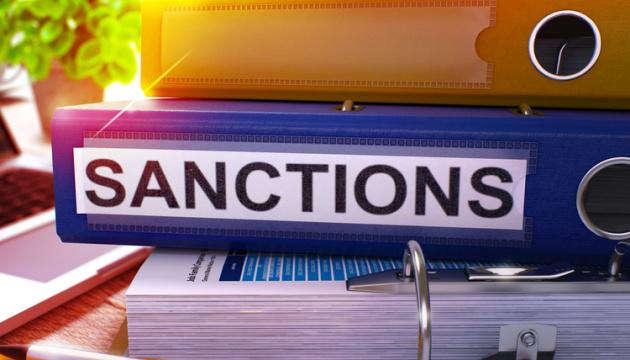Sovereignty: The main battering ram against the Western liberal mainstream The ideological crisis of Liberalism
Not long ago, the liberal mainstream, which dominated the ideological landscape of the West without question, is now facing increasingly existential challenges. It is becoming less and less capable of providing social responses that align with the spirit and needs of the times. This is especially noticeable in the United States, but also manifests itself in the European Union, despite Brussels’ strict liberal policies. In both cases, national sovereignty has become the main battering ram against the liberal mainstream.
A large international conference, the Budapest Global Dialogue, was recently held in the Hungarian capital. Its main organisers from the Hungarian Institute of International Affairs aim to establish a broad platform for discussions on the key challenges of our time. In doing so—much like the Hungarian government under Viktor Orbán—they draw on a conservative political ideology and the realist school of international relations. As a result, the conference took on a distinctly critical tone toward the liberal Western mainstream.
What does the political mainstream in the West look like today?
With each passing day of Donald Trump’s presidency, the question becomes increasingly relevant: what exactly does the political mainstream in the West represent today? To what extent is it still liberal? In the United States, we can already observe a gradual shift in the mainstream away from centre-left positions and toward the right—from a once-dominant liberalism to a somewhat more conservative orientation, at least in terms of the socio-political agenda. This trend is still in its early stages. Its trajectory is far from predetermined. But its development is undeniable.

Even if the Democrats — the primary embodiment of the left-liberal mainstream in recent decades — win the next congressional and presidential elections in the United States, there is little reason to expect an ideological return to the pre-Trump status quo. This is not about Trump himself or the various factions within the Republican Party. The possible re-election of Donald Trump for a second term, after a break, is not the cause but rather the reflection of deep transformational processes within American society — and the shifts in political preferences they have triggered. The real cause of these processes lies elsewhere, and it is plainly visible.
Every political ideology, no matter how popular or seemingly flawless in theory, loses its perfection when it encounters the complexity of the real world. Once it leaves the idealised “laboratory” conditions — where the full intricacy and dynamics of societies cannot be fully anticipated — it must face reality. Even if an ideology perfectly aligns with the spirit and needs of a particular time, this does not mark the “end of history,” but rather a snapshot of current circumstances. And there is no such thing as the “end of history.” The world and individual societies are never static — they are constantly evolving under the influence of new factors, conflicts of interest, and emerging opportunities. For a dominant ideology to remain effective, it must continuously adapt and modernise in line with societal change. But over genuinely long historical periods, this is scarcely possible.
The Western capitalist bloc’s victory in the Cold War and the subsequent era of flourishing unipolar globalisation naturally led — not only in the West — to a euphoric embrace of liberal ideology. This is precisely why the theoretically questionable notion of the “end of history” gained such popularity and, for quite some time, seriously set the tone of political and intellectual discourse around the world. In some Western capitals, it still continues to do so.
However, the Western liberal mainstream — rooted in the belief in the unmatched efficiency of the market economy, electoral democracy, and the primacy of individual human rights — is increasingly unable to provide adequate responses to today’s challenges. What seemed two or three decades ago to be an ideological Bible is now, in many cases, no longer taken seriously. As demonstrated by the COVID-19 pandemic and the shocks caused by a growing number of military conflicts, most Western governments themselves — when under pressure — do not adhere to the tenets of this ideological “Bible.” And that is a perfectly natural response to changing circumstances: an act of pragmatic adaptation.
Europe is following in America’s footsteps
It is therefore fair to state that the ideological crisis of mainstream liberalism in the West is not a temporary phenomenon. Liberalism, as a practical model for structuring society and international relations — as we have known it for many decades — is receding into history. It will not simply return as it once was. It can only be reborn in new forms.
And that is likely what will happen: the ideological foundations of liberalism will continue to compete with the foundational ideas of other major ideologies — primarily conservatism and socialism. But all of them, in order to survive politically and remain relevant, will inevitably have to evolve into new forms. The problem is that the world is currently at a point of ideological crisis where, to paraphrase the old revolutionary phrase, “the upper classes can no longer rule as before, and the lower classes no longer want to live as before.” Yet there are still no serious intellectual proposals for new models that would make both “can” and “want” possible.

In Europe—especially within the EU’s institutional framework in Brussels—the political mainstream remains liberal, continuing to operate along familiar, well-worn lines. However, a rightward shift is already becoming evident there as well. It is driven by the same reasons as in the United States: the liberal ideological framework is increasingly out of sync with the contemporary needs of the Union and its member states. For the European Union, this may even prove to be a more acute problem than for the US, as the EU faces far more serious and potentially existential challenges amid the shift from a formerly unipolar world to a model of multipolarity.
The liberal political mainstream is currently unable to offer the European Union an effective ideological platform suited to these new global realities. Blindly adhering to familiar ideological mantras in radically changed international conditions risks further undermining the EU’s competitiveness on the world stage.
Sovereignty as a battering ram
At the same time, if we look at the decisions currently being made within the EU—and particularly at the actions of the European Commission, the bloc’s main supranational body—it seems that none of this is being acknowledged. Brussels continues to operate as if liberalism has triumphed completely and irreversibly, and it demands the same ideological conformity from EU member states, accession candidates, and even the rest of the world. To reinforce these expectations, a growing array of sanctions and restrictions are being imposed—both within Europe and beyond its borders.

All of this is provoking a natural backlash from an increasing number of countries that have either become targets of Brussels' demands and sanctions, or simply disagree with the European Commission’s general line. These states are unwilling to allow unelected bureaucrats to make key decisions on their behalf in matters of domestic and foreign policy. While foreign policy in the EU is officially shaped through the consensus of its member states — meaning it is intergovernmental rather than supranational — it is difficult to ignore the significant influence of Brussels’ rigid “supranational narrative,” which seeks to keep both the foreign policy of individual countries and the Union as a whole within a single ideologically correct framework.
As a result, an increasing — albeit not always high-profile — number of clashes are occurring between the supranational and the national levels, between EU institutions in Brussels and the governments of member states. In essence, this is a confrontation between national sovereignty, grounded in national interest, and the liberal mainstream embedded within EU institutions. Today, this confrontation can be considered the main fault line of tension — and even conflict — within the European Union. Over time, this divide and the conflict it fuels are only likely to deepen and intensify.
In this context, it is national sovereignty that has become the primary battering ram against liberalism, which still maintains its mainstream status within the EU. It is no surprise, then, that the majority of discussions at the recent Budapest Global Dialogue conference centred, in one way or another, on the theme of sovereignty.
On the socio-economic and domestic policy front, many speakers reminded the European Commission and other Brussels institutions of the fundamental importance of the principle of subsidiarity — the practice of decision-making at the lowest possible level, as close as possible to the people and communities directly affected by those decisions. In foreign policy, Brussels was — not without justification — accused of attempting, by one means or another, to absorb powers and competencies that traditionally belong to national governments, often at the expense of the basic interests of the member states themselves.
The substance and spirit of the conference’s debates echoed an old piece of wisdom: that sovereignty for a community is what freedom is for an individual. And the aspiration for sovereignty possesses a remarkable power to unite and to break through.








